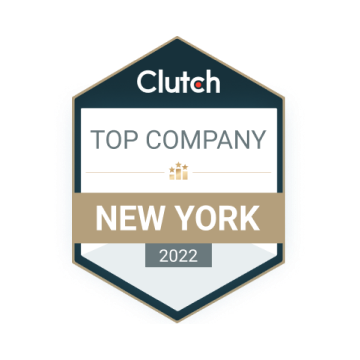Corporate Lead Generation
Energy buying cycles are long, technical, and committee-driven. We help your team create and advance sales-ready conversations with the right utilities, grid operators, oil and gas, renewables, and industrial accounts. Our corporate lead generation approach starts with a precise ICP and priority account list built from firmographic and technographic signals. We map buying centers, identify real decision makers, and design offers that resonate in the energy context – technical workshops, demos tied to operational KPIs, ROI and risk calculators, and proof-of-value pilots.

Our Offerings
Account Intelligence & Buying-Center Mapping
We start by defining a precise ICP for energy segments – utilities, grid operators, oil and gas, renewables, and large industrials – and validating it with real data. Firmographic and technographic signals (fleet size, asset mix, SCADA/DERMS footprint, ERP/CMMS stack) feed a living account list. We identify buying centers across OT, IT, operations, finance, and HSE, then map actual people, roles, and influence paths. The output is a ranked account plan and contact map your sales team can act on today.
ABM Campaigns for Priority Accounts
We build account-based marketing programs that speak to energy buyer pains: safety, uptime, emissions, and unit economics. Plays combine precision email, LinkedIn, industry publications, and content syndication, sequenced to match evaluation stages. Each touch is tied to a clear next step – workshops, diagnostic calls, pilot scoping – so activity converts to opportunities. Reporting centers on account reach, engagement depth, meetings set, and pipeline created.
SDR & Meeting Setting for Enterprise Sales
Our SDR team works from approved talk tracks and objection handling built for energy buyers and technical evaluators. We run multichannel sequences (email, phone, LinkedIn) and triage inbound leads, routing qualified interest to the right AE in your CRM. Daily activity logs, call notes, and conversation summaries live in Salesforce or HubSpot, so managers can coach and forecast with confidence. The goal is simple: more sales-ready meetings with the accounts that matter.
Paid & Organic Demand for Energy Buyers
We activate demand generation across high-intent search, LinkedIn, and niche industry media. Messaging aligns with use cases – asset performance, predictive maintenance, grid flexibility, methane reduction – and lands prospects on conversion-ready pages. Budgets are paced by cost per qualified lead and opportunity creation, not vanity clicks. Remarketing and content syndication keep your brand in the evaluation set during long buying cycles.
Technical Content & Value Assets
Energy buyers want specifics. We create application notes, one-page value summaries, ROI and payback calculators, and demo scripts that connect product capabilities to operational KPIs. Sales decks, email snippets, and landing pages are built from the same source of truth, so marketing and sales tell one story. For complex solutions, we script webinars and workshop agendas that shorten discovery and move deals to pilot.
RevOps, Data & Intent Integration
We wire your stack so nothing falls through the cracks. Lead and account routing, scoring rules, and SLA alerts keep response times tight. Intent data, website analytics, and campaign performance roll into shared dashboards that highlight what’s working by segment, message, and channel. Clean attribution links ABM, SDR, and demand gen to pipeline, helping you prioritize the plays that consistently build revenue.
How We Bring Value To Your Business
Built for enterprise and corporate energy sales motions, our programs focus on fewer, better targets and steady conversion from first touch to pilot.
1
Sharper Focus on High-Probability Accounts
We rank and segment targets using firmographic, technographic, and intent signals, then center SDR effort and ABM spend on the accounts most likely to move. The effect is simple: higher meeting acceptance and lower cost per qualified meeting.
2
Faster Access to the Buying Committee
We map OT, IT, operations, finance, and HSE stakeholders, expand contacts, and multi-thread early. Deals stall less often and discovery cycles shrink because the right people are in the room from call one.
3
Messaging and Assets That Speak “Operations”
ROI calculators, one-page value summaries, demo scripts, and workshop agendas connect your offer to uptime, emissions, OPEX, and safety metrics. Prospects see a clear case for change and a realistic path to pilot.
4
Clean Handoffs and CRM Clarity
Lead routing, scoring rules, and SLA alerts move interest to the right owner fast. Activity, notes, and outcomes land in Salesforce or HubSpot, giving managers a reliable view of response times, meetings set, and pipeline added.
5
Pipeline Quality Over Volume
Qualification criteria match your enterprise deal profile. We track conversion by stage (inbound, outbound, MQA, SQL, Opportunity) and tune sequences, content, and channels to improve meeting-to-opportunity rates and win rates.
6
Playbooks That Learn and Scale
We test messages, offers, and channels by segment and region, then shift budget to the winners. The result is a repeatable corporate lead generation engine that keeps adding opportunities without inflating spend.
Challenges We Commonly Solve
These are the blockers that slow energy deals and how we address each one.
Fix the blockers in your pipeline.
Why Choose WiserBrand
You want a partner who can operate inside long energy sales cycles and speak the language of operations, finance, IT, and OT.
1
Energy Context, Not Guesswork
Our team works across utilities, grid operators, oil and gas, and renewables. We map buying centers that include OT and IT, and build messaging that ties your offer to uptime, emissions, OPEX, and safety targets. That context keeps conversations relevant and moves prospects toward pilot.
2
Marketing, SDR, and RevOps Working as One
We connect ABM, paid media, and SDR outreach with your CRM and marketing automation. Lead routing, scoring, SLA alerts, and activity capture are configured in Salesforce or HubSpot, so owners, next steps, and stage changes are always clear. The result is a consistent handoff and cleaner forecasting.
3
Proof First, Then Scale
We start with a small set of high-probability accounts, test offers and sequences, and expand only after we see stronger acceptance rates, more meetings, and better stage-to-stage conversion. This keeps spend focused and builds a repeatable corporate lead generation motion for your energy segments.
Cooperation Models
Choose an engagement style that fits your pipeline goals and internal capacity.
A focused 8–12 week engagement to validate the approach with a tight list of priority energy accounts. We refine ICPs, build the account and contact map, launch two coordinated plays (ABM + SDR), and run a simple weekly cadence. Success is judged on meetings with the buying committee, SQL creation, and pilot progression. You keep the assets: messaging library, talk tracks, account plans, and reporting.
An integrated squad – strategist, SDRs, paid media, content lead, and RevOps – operates as an extension of your team. We own day-to-day execution across email, LinkedIn, search, and industry media, with routing, scoring, and SLAs configured in your CRM. Monthly targets cover meetings, opportunities, and stage conversion, with quarterly resets by segment and region. This model suits complex deals with OT, IT, and operations stakeholders across utilities, grid operators, and industrials.
For teams that have coverage but need sharper execution. We audit funnel health, fix routing and scoring, build dashboards, and coach SDRs on energy-specific talk tracks and objections. Campaign blueprints, workshop agendas, and value assets are delivered ready to deploy, with bi-weekly working sessions to review data and tune plays. Your team executes; we provide direction, assets, and accountability.
Our Experts Team Up With Major Players
Partnering with forward-thinking companies, we deliver digital solutions that empower businesses to reach new heights.
Our Approach
We move from account selection to pilot in a clear, data-driven sequence. Each step has owners, artifacts, and a metric that proves progress.
ICP and Data Assembly
Define segment-specific ICPs across utilities, grid operators, oil and gas, renewables, and large industrials. Build the account list with firmographic, technographic, and intent signals (asset mix, SCADA/DERMS footprint, ERP/CMMS stack), then enrich contacts and rank opportunities by likelihood to engage.
Offers, Messaging, and Assets
Draft role-based value hypotheses for OT, IT, operations, finance, and HSE. Create the pieces that move deals forward: one-page value summaries, ROI and payback calculators, demo scripts, workshop agendas, and follow-up email packs. Map each asset to a specific stage and next step.
Orchestrated ABM + SDR Execution
Launch coordinated plays across email, phone, LinkedIn, high-intent search, and industry media. SDR sequences and ABM touches reference the same messaging library and point to a defined action (diagnostic call, workshop, pilot scoping). Leads route to owners in Salesforce or HubSpot with scoring and SLA alerts to keep response tight.
Pilot Design and Deal Acceleration
Convert interest into structured pilots with a mutual action plan, exit criteria, and an executive sponsor identified early. Align technical validation with OT/IT stakeholders, schedule weekly checkpoints, and capture risks, findings, and decisions in shared notes that feed the opportunity record.
Measurement and Scale-Up
Report on acceptance rates, meetings set, stage-to-stage conversion, deal velocity, and pipeline added by segment and region. Shift budget to winning messages and channels, retire underperformers, and expand the playbook to adjacent accounts. The result is a repeatable enterprise lead generation motion that compounds over time.
Case Studies
Our case studies highlight the outcomes we’ve delivered and the approaches that made them possible.
Corporate Lead Generation FAQ
You’ll have a ranked account list, mapped buying centers, a message library, and two coordinated plays live (ABM + SDR). The early signal is meetings with OT, IT, operations, and finance at priority energy accounts and baseline conversion data to guide next steps in corporate lead generation.
We align on MQA and SQL criteria up front: named-account fit, role match inside the buying committee, verified interest or intent, and a scheduled next step such as a diagnostic call, workshop, or pilot scoping.
Yes. We configure routing, scoring, and SLA alerts in Salesforce or HubSpot and sync campaigns from Marketo or Pardot. All activities, notes, and outcomes stay in your system for clean visibility and forecasting.
We use a mutual action plan with exit criteria, an identified executive sponsor, and a weekly cadence that captures decisions and risks. This keeps pilots aligned with operational KPIs and reduces late-stage stalls common in enterprise lead generation.
Role-based assets that speak to energy use cases: one-page value summaries, ROI and payback calculators, demo scripts, webinar and workshop agendas, and landing copy tied to asset performance, emissions, OPEX, and grid flexibility. These give evaluators concrete reasons to advance.























